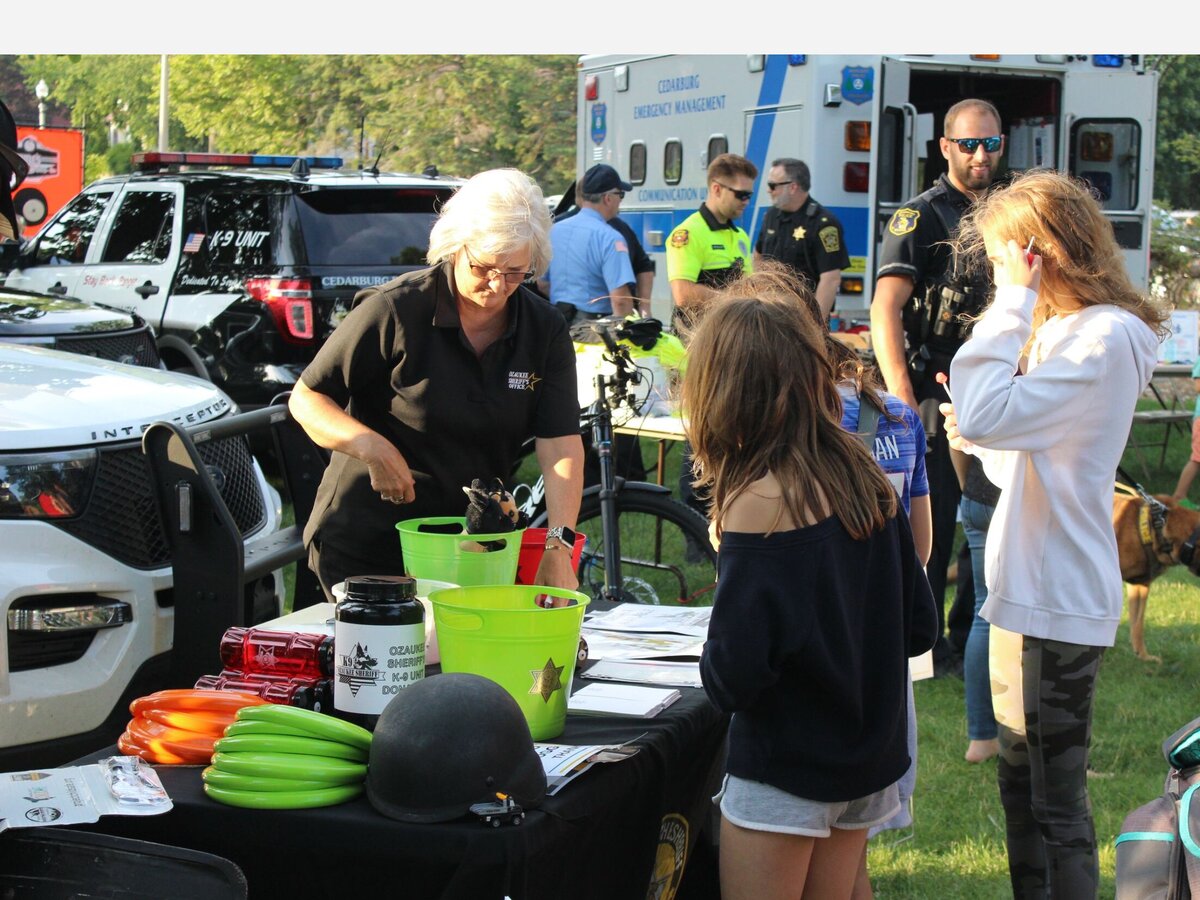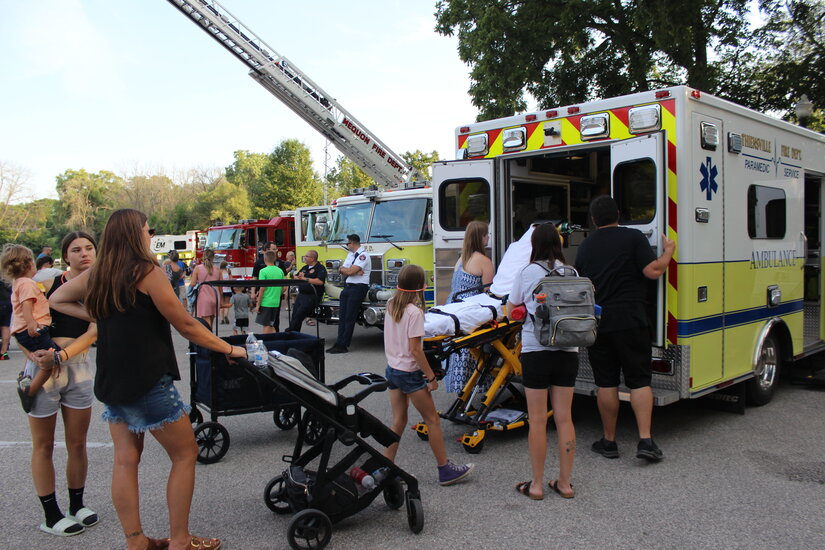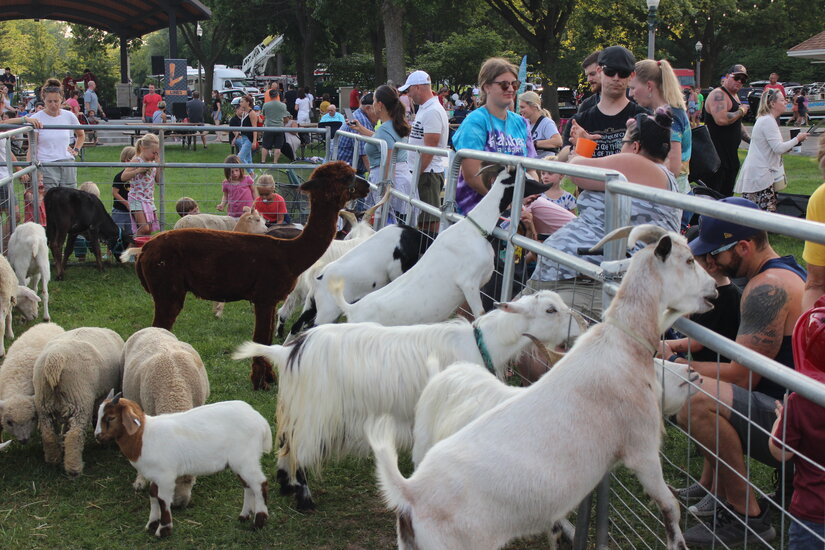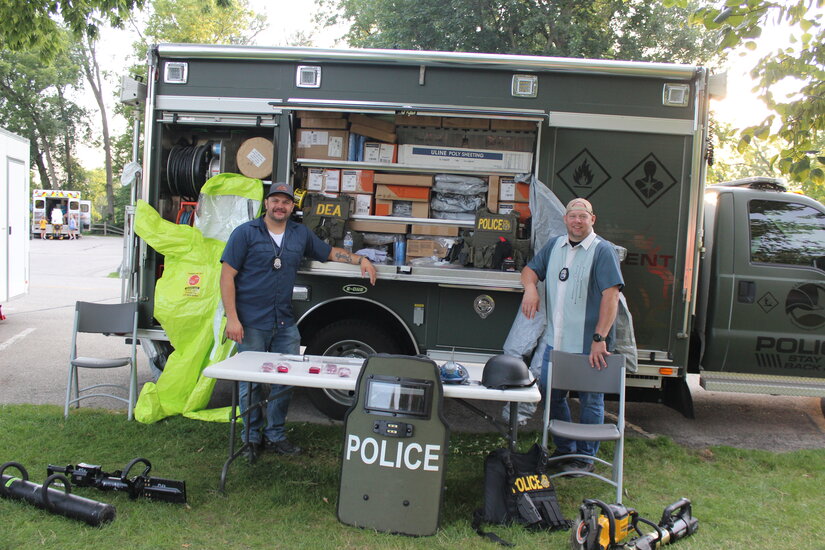Image


THIENSVILLE, Wis.--The Village of Thiensville Police Department hosted Tuesday's National Night Out in Village Park--a free, family event that fosters positive relationships between the community and law enforcement as well as other first responders.
This annual community gathering of local and surrounding law enforcement officials serves to not only build community partnerships, but also to enhance "neighborhood camaraderie to make our neighborhoods safer, more caring places to live," according to National Night Out's website.
According to Ozaukee County Sheriff Jim Johnson, the Ozaukee County NNO event is special because of the high participation of all involved. It shows citizens how law enforcement works in tandem with other state law enforcement agencies as well as other community departments to provide services to keep citizens and our communities safe, he said.

This year's event brought in law enforcement and first responders from communities such as Fredonia, Cedarburg, Saukville, Port Washington, Mequon, Thiensville and the Ozaukee Sheriff's Office. Other law enforcement officials from the Department of Justice, the Federal Bureau of Investigation and the Wisconsin State Patrol all had exhibits and events for families.
Thiensville Police incorporated food, games, face painting, a dunk tank, live music, a petting zoo as well as a large blow-up slide course and a raffle into this year's NNO. Flight for Life also dropped in for a visit.

Participants donated non-perishable food items to Family Sharing of Ozaukee County.
Millions of communities including US Territories and the US Military host National Night Out events such as this on the first Tuesday each August.
"National Night Out was introduced in August of 1984 through an already established network of law enforcement agencies, neighborhood watch groups, civic groups, state and regional crime prevention associations and volunteers across the nation," said information on the NNO website. "The first annual National Night Out involved 2.5 million neighbors across 400 communities in 23 states."
